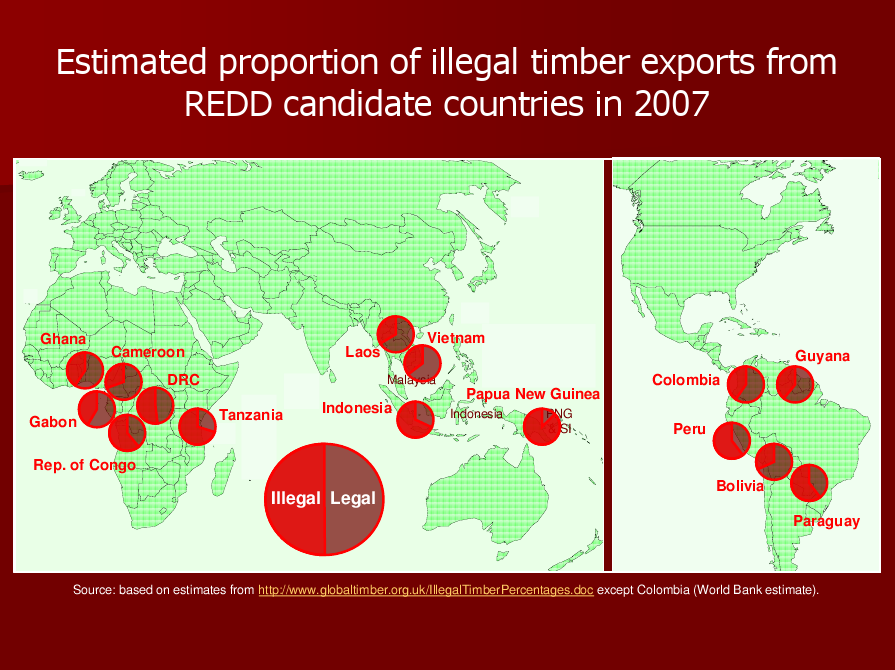In our globalized world, Northern hemisphere dwellers are connected to the rainforests of Indonesia and Papua New Guinea (PNG) more than ever. Images of endless rainforests and isolated communities have been replaced with today’s reality of industrialized settlements spread throughout a patchwork of remnant tropical forests. Palm oil and pulp and paper production bring key consumer products directly from tropical forests to northern buyers in massive scales.
The Waxman-Markey bill acknowledges the USA’s connection to Indonesia and PNG’s tropical forests in defining their use as a tool to reduce climate change. Waxman-Markey is a milestone in the development of a mandatory market that encompasses forest carbon, and its effects will surly be felt on the ground in tropical forests worldwide.
The 1200 page bill, passed by the House and facing a battle in the Senate, specifically mentions REDD credits, and allows for their use in two contrasting ways.
First, the bill allows for 1 billion tons of CO2 reductions to come from internationally generated REDD offsets. A polluter will be allowed to use a maximum of 15 % REDD credits to meet their emission reduction obligations in 2012, increasing to 33% by 2050. The major threat with this proposed system is that REDD, as well as other offsets provisions, will let polluters off the hook for a significant portion of their emissions reduction obligation well into the future.
Second, 5% of credits reserved by the government (decreasing in later years to 2%) will be used to generate a fund for Supplemental Emissions Reductions from Reduced Deforestation and build capacity to generate additional international deforestation offsets in the future, with the goal of achieving additional emission reductions equivalent to 10% of US emissions reduction (Waxman and Markey’s summary of all special allocations from carbon credits is available HERE). This fund-based approach is a much more promising opportunity to protect forests, and in order to be as effective as possible, it should be increased in the Senate bill to from 5 to 15% of carbon credits allocated.
The climate negotiations in Copenhagen are fast approaching, and many think that, to be taken seriously there, the USA needs to send a strong signal that they are capable and willing to regulate carbon. The Senate passing a stronger climate bill than Waxman-Markey would undoubtedly be that signal. In addition to sending a strong message to the international community on being committed to emissions reduction, the bill would, assuming a hypothetical carbon price of USD 15 per ton, create a $15 billion fund for conserving the world’s forests.
Surly, USD 15 billion will boost many current forest management efforts across the tropics. Rightfully so, as David Niebauer, a clean energy attourny in SF, CA, points out, as tropical deforestation contributes to 20% of all human CO2 emissions.
The problem with the potential forest offsets market in Waxman Markey is that with all of this potential supply, large volumes of cheap REDD offset credits could flood the market and deflate the domestic price of carbon. A lower price of carbon means less financial incentive for coal powered utilities and other heavy emitters to stop polluting and invest in and clean technologies and green jobs domestically. Without a firewall between forest and fossil carbon, everybody loses.

On the other hand, the the conservation challenges inherent to protecting the world’s tropical habitats from deforestation mean that eliminating carbon emissions from Indonesia, the Amazon, and the Congo is going to cost quite a bit more than USD $15 billion. As the figure above shows*, all key REDD candidate nations have deeply rooted problems with illegal logging, one of the toughest conservation challenges to stem.
Expanding the US’s Fund approach in the Senate Bill, and getting a strong REDD deal in Copenhagen, will be two essential first steps to addressing this challenge.
*Thanks to the REDD-Monitor for the graphic.
David Gilbert is a Research Fellow at RAN. He has worked in the tropical forests of the Amazon and Indonesia, with a special focus on forest conservation and indigenous rights. He can be reached at davidgilbert@ran.org